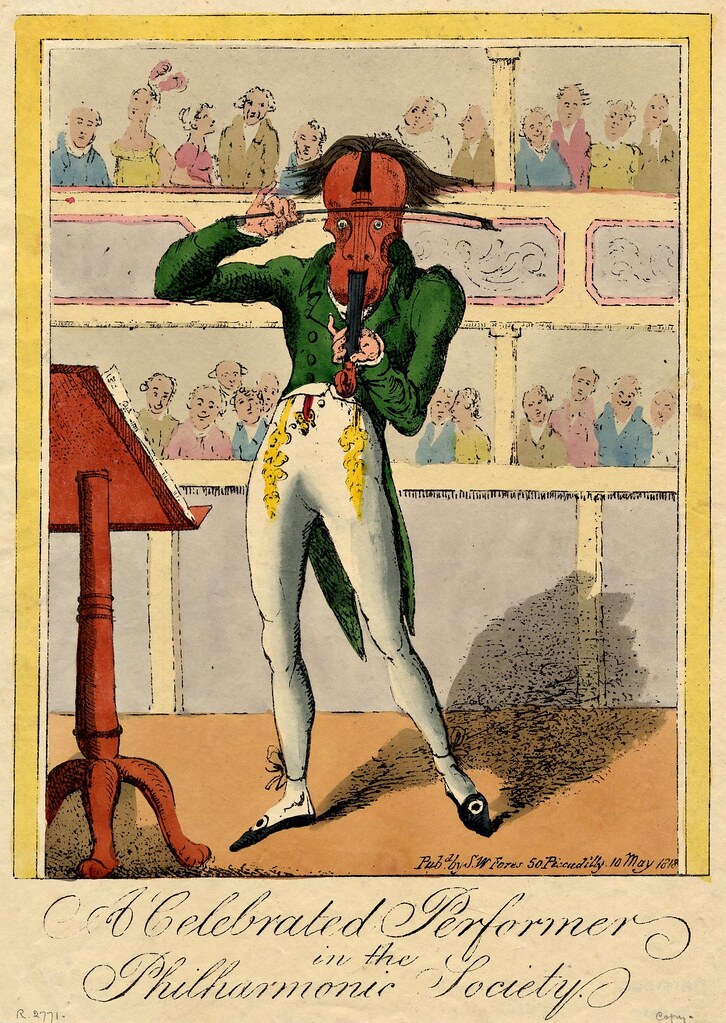Dieudonné-Pascal Pieltain (1754-1833)
- Quatrième concerto [G] à violons principal
Performers: Emmanuel Koch (1930-2005, violin); Les Solistes De Liège; Géry Lemaire (1926-2013, conductor)
Further info: Belgian Orchestral Music Of The 18th Century
---
Flemish violinist and composer. He seems to have studied in Liège, and
from 1761 to 1763 was a choirboy at the church of St Pierre. He probably
remained there until 1765, when he left Liège and went to Italy, no
doubt with his friend Henri Hamal. He took lessons from Giornovichi, and
probably followed him to Paris: Giornovichi first performed at the
Concert Spirituel in 1773, and the Spectacles de Paris for that year
mentions, among the four tenor violins of the orchestra, a certain
Pieltain resident at the Hôtel de Soubise. From 1778 Pieltain regularly
played as a soloist with the Concert Spirituel. He also attracted
comment for his brawling lifestyle. On 21 March 1779, Pieltain performed
one of his own compositions with the Concert Spirituel. Giornovichi
left Paris that year, and Pieltain took his place in the Prince de
Guéméné's orchestra. His brother, Jacques-Joseph-Toussaint Pieltain
(1757-?), a well-known horn player and a pupil of Punto, joined him
there. The two musicians returned to Liège with the prince's orchestra,
and gave concerts at Spa with Carl Stamitz in September 1780. In 1782
the brothers went to London; Dieudonné-Pascal gave concerts at Drury
Lane Theatre, the Lent Oratorios and the New Rooms, and the following
year became leader of the orchestra of the Hanover Square Concerts. He
also played violin solos at Vauxhall Gardens from 1783, and in 1785
became leader of the Professional Concert. In 1786 he married Marie
Chanu, a soprano who performed at the Pantheon and the Salomon concerts.
Pieltain continued his career as a soloist on the Continent while
pursuing his activities in London. He was apparently on friendly terms
with either Leopold or Wolfgang Amadeus Mozart. The death of Marie Chanu
in 1793 caused Pieltain to leave London for good. He played in Germany,
Poland and Russia, and seems to have returned to Paris and Liège at
regular intervals. It was to Liège that he finally retired, when he
turned to teaching and had a number of future violin virtuosos among his
pupils, who included Hubert Léonard. Pieltain died in 1833, a wealthy
patron of music. Pieltain's own compositions were mostly for his own
instrument: 13 of his violin concertos, six sonatas, 12 quartets, six
duets and 12 petits airs for violin were engraved. According to Fétis
and Vannes, he left some 30 concertos, 167 quartets, six sonatas for
violin and cello, and 50 violin studies, all in manuscript, but these
are now lost. His works reflect the various contacts he made during his
career; his first concertos, for example, are in the direct line of
descent from Italian concertos, but his later works reflect the Mannheim
style. In his quartets, which show the characteristics of Viennese
classicism, Pieltain cultivates a certain melodic elegance without
neglecting virtuosity.

Cap comentari:
Publica un comentari a l'entrada